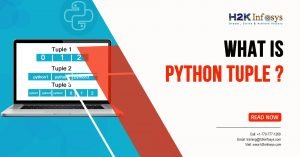Have you ever wondered how much a Python Developer earns in today’s job market? Python is no longer just a programming language; it’s a career powerhouse. From powering artificial intelligence to building scalable web applications, Python dominates the tech landscape. With this demand comes lucrative salary opportunities.
In this blog, we will explore the salary ranges of a Python Developer across different countries, industries, and experience levels. We’ll also uncover how the right online Python training, online certification in Python, and a structured Python course with placement can help you break into this rewarding career.

Why Python Skills Translate Into High Salaries
The rise of Python is directly tied to the industries it serves:
- Data Science and AI: Python leads in machine learning and artificial intelligence solutions.
- Web Development: Frameworks like Django and Flask make it a go-to choice for scalable apps.
- Automation: From testing to workflow automation, Python reduces manual effort.
- Finance and Healthcare: Data analytics in these sectors relies heavily on Python.
With such wide adoption, companies are willing to pay top salaries to skilled Python Developers.
Global Salary Overview of a Python Developer
Here’s a breakdown of average salaries for Python Developers in different regions:
| Region | Entry-Level (0–2 yrs) | Mid-Level (3–6 yrs) | Senior-Level (7+ yrs) |
|---|---|---|---|
| United States | $70,000 – $95,000 | $100,000 – $130,000 | $135,000 – $160,000 |
| Canada | CAD 60,000 – 80,000 | CAD 85,000 – 105,000 | CAD 110,000 – 130,000 |
| United Kingdom | £35,000 – £45,000 | £50,000 – £70,000 | £75,000 – £90,000 |
| India | ₹4.5 LPA – ₹7 LPA | ₹8 LPA – ₹14 LPA | ₹15 LPA – ₹25 LPA |
| Australia | AUD 70,000 – 90,000 | AUD 95,000 – 120,000 | AUD 125,000 – 150,000 |
| Middle East | $30,000 – $45,000 | $50,000 – $75,000 | $80,000 – $100,000 |
Note: Salaries vary based on company size, location, and specialization.
Factors Affecting the Salary of a Python Developer

1. Experience Level
- Entry-Level Python Developers: Typically earn less but quickly grow with project exposure.
- Mid-Level Python Developers: Take on specialized roles such as data engineering or automation testing.
- Senior Python Developers: Often lead teams, manage projects, and contribute to architecture design.
2. Industry Demand
- Finance and Banking: Python Developers skilled in analytics and risk management earn higher packages.
- Healthcare: Data-driven solutions create well-paying roles in medical research.
- E-commerce and Tech: Companies invest heavily in developers to build scalable systems.
3. Geographic Location
Working in tech hubs like New York, London, or Bangalore can significantly impact salaries.
4. Specialization
- Machine Learning/AI Python Developer: Among the highest-paid due to niche expertise.
- Web Development Python Developer: Consistently in demand for startups and enterprises.
- Automation Testing Python Developer: Paid well for improving efficiency in software development.
5. Skill Set & Certifications
Employers value candidates with:
- Online Python training for hands-on knowledge.
- Online certification in Python to validate skills.
- A Python certification course covering real-world projects.
Salary Comparison by Role
| Role | Average Salary (USD/year) |
|---|---|
| Python Web Developer | $75,000 – $115,000 |
| Data Analyst (Python) | $70,000 – $100,000 |
| Data Scientist (Python) | $95,000 – $140,000 |
| Machine Learning Engineer (Python) | $110,000 – $160,000 |
| Automation Engineer (Python) | $80,000 – $120,000 |
This shows how specialization can boost your earnings as a Python Developer.
Case Study: How Certification Boosts Salaries
A survey by industry job portals shows that certified professionals earn 20–30% higher salaries than non-certified peers. For example:
- An entry-level developer with online certification in Python may start at $85,000 instead of $70,000 in the U.S.
- In India, certified Python Developers can secure salaries of ₹9 LPA instead of ₹6 LPA.
This salary gap proves that structured training through a Python course with placement helps candidates land better-paying jobs faster.
Step-by-Step Guide to Becoming a High-Earning Python Developer
- Learn the Fundamentals: Master Python basics like loops, functions, and object-oriented programming.
- Enroll in Online Python Training: Choose a structured program with real-time projects.
- Earn a Python Certification Course: Get industry-recognized credentials to validate your skills.
- Work on Specialization: Pick a path AI, Data Science, Web Development, or Automation.
- Build a Portfolio: Create GitHub projects, mini-apps, or data models to showcase your expertise.
- Apply for Internships or Placement Programs: A Python course with placement ensures industry exposure.
- Stay Updated: Python evolves with libraries like Pandas, TensorFlow, and FastAPI continuous learning is key.
Hands-On Example: Python Code for Salary Data Analysis
Here’s a simple snippet that shows how a Python Developer might use data to analyze salary trends:
import pandas as pd
data = {
"Role": ["Web Developer", "Data Scientist", "ML Engineer", "Automation Engineer"],
"Salary_USD": [90000, 120000, 140000, 105000]
}
df = pd.DataFrame(data)
print("Average Salary of Python Roles:", df["Salary_USD"].mean())
print(df)
This small task reflects how Python helps in quick salary analysis, which can be applied to real-world HR analytics.
Key Takeaways
- A Python Developer enjoys strong demand across industries and geographies.
- Salaries vary by location, experience, and specialization.
- Certified developers earn significantly higher than non-certified peers.
- Investing in online Python training and a Python course with placement boosts career opportunities.
Conclusion
Becoming a successful Python Developer is not just about coding it’s about upgrading skills, gaining certification, and choosing the right specialization. With structured online certification in Python, you can unlock higher salary opportunities and secure your dream job.
Take the first step today, enroll in H2K Infosys’ Python certification course, and transform your career with hands-on training and placement support.
























